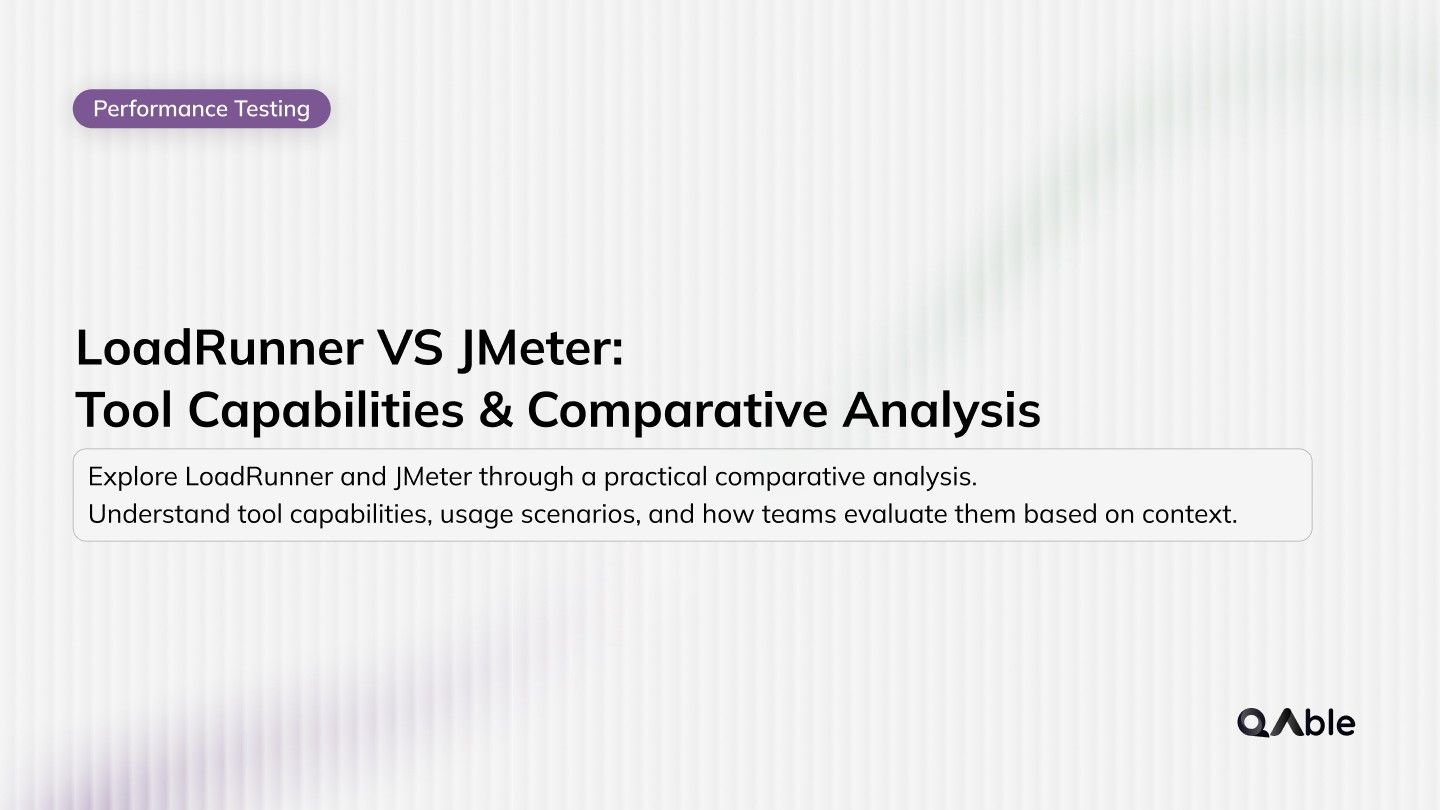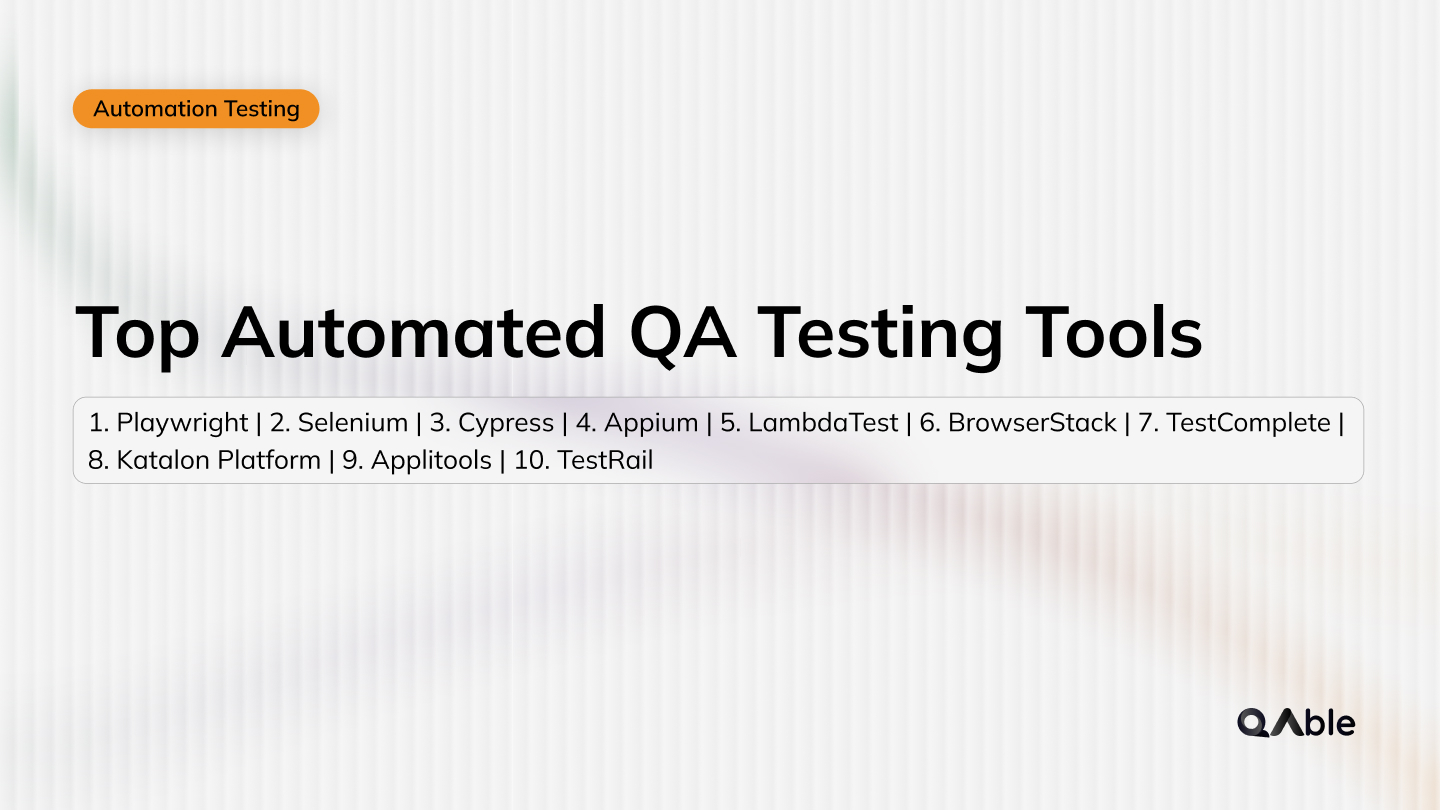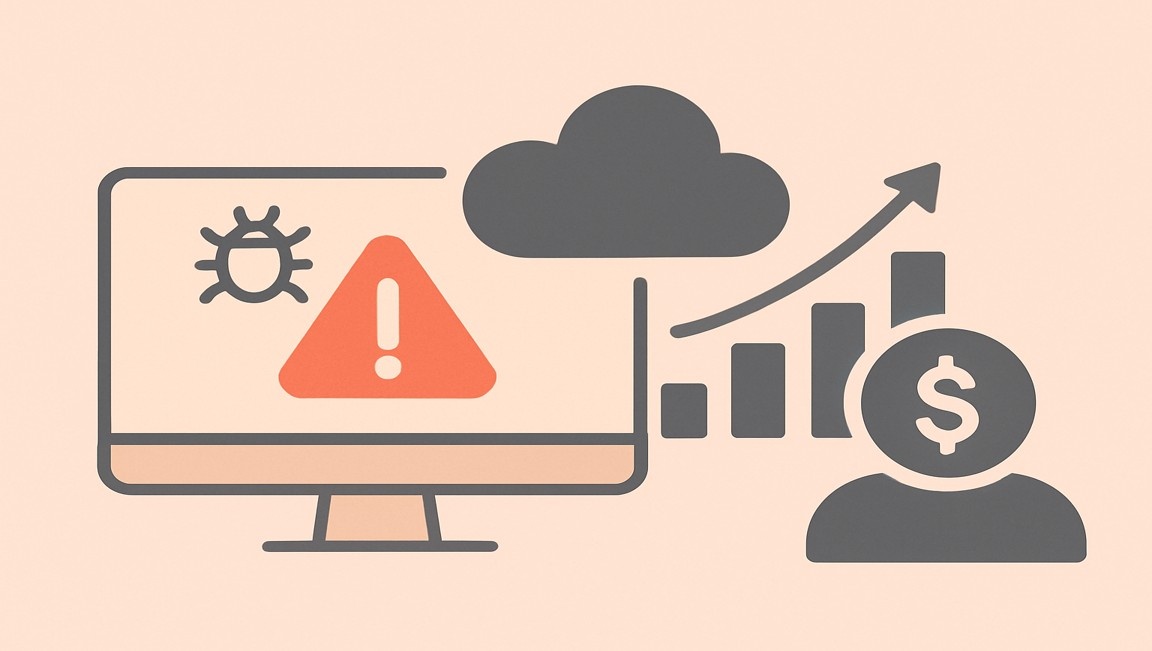Table of content
SHARE THIS ARTICLE
Is this blog hitting the mark?
Contact Us
The Healthcare Industry is the most popular target for hackers. 30% of large data breaches happen in hospitals. Most attacks are based on human errors. Hackers rely on people opening attachments, creating weak passwords, and connecting to an open WiFi network from a device containing medical data.
In America, there is a regulation that demands all businesses and organizations that are working with people’s health information. PHI (Protected Health Information) protects patients’ data privacy, integrity, and security under HIPAA compliance.
Table of Content
- What is HIPAA?
- Ensuring HIPAA Compliance in Healthcare Application Testing
- QAble Safeguards Your HealthTech with HIPAA Compliance
- FAQs
What is HIPAA?
The Health Insurance Portability and Accountability Act, or HIPAA, was enacted as a federal law in 1996 to outline three rules for compliance.
- Privacy Rule - The HIPAA Privacy Rule defines guidelines for disclosing and using PHI. It grants individuals certain rights over their health data and restricts healthcare services or providers when using, sharing, or handling PHI.
- Security Rule - The HIPAA Security Rule defines guidelines and standards for handling ePHI and its security. It implements physical, technical, and administrative safeguards to protect ePHI.
- Breach Notification Rule - The HIPAA Breach Notification Rule outlines requirements for covered entities to be notified in the event of unsecured PHI.
Healthcare applications play a vital role in handling such sensitive information. With the increasing digitization of healthcare systems, healthcare applications must be thoroughly tested to adhere to HIPAA guidelines and compliance regulations.This article will discuss the key considerations and best practices to ensure HIPAA compliance in healthcare applications through quality testing.
Ensuring HIPAA Compliance in Healthcare Application Testing
HIPAA covers key aspects when it comes to managing healthcare data. This makes it even more significant for applications to be tested well, especially healthcare applications. Let’s explore why HIPAA compliance in Application Testing is so vital.
- Protecting Patient Privacy
HIPAA has established national standards for privacy and security guidelines to protect an individual’s health data. It covers entities like healthcare providers and services.Since such healthcare service providers use vast amounts of data, the health data must have restrictions over what and how much data should be allowed to be accessed by these entities.
Below are some key points to keep in check when conducting healthcare application testing to protect privacy following HIPAA compliance.
1. Access Control: To implement robust access control over the healthcare application being tested, it's essential to ensure that only authorized personnel are allowed to access the data.Role-based authorization, One-Time-Password Authentication, and secure user management are some of the additional layers to strengthen access control.
2. Encryption and Data Transmission: It's essential to keep the patient’s data encrypted whether at rest or while being transmitted. In the case of a data breach of the encrypted data, there must be safeguards to ensure that the data remains unreadable and protected. Testing should validate that the encryption protocols are correctly implemented, and the functioning remains unaffected.
3. Anonymization and de-identification: The application testing must ensure that the PII (Personal Identifiable Information) remains anonymous and de-identified in case they are exposed to unauthorized access.
4. Audit Logging and Monitoring: Healthcare applications with audit logging and monitoring systems verified by application testers allow for traceability and accountability in case of any unauthorized access and potential data breaches.
5. Vulnerability Assessment and Penetration Testing: Regular vulnerabilities and penetration testing of the healthcare application should be conducted regularly to ensure the integrity of patient data. With this approach, the loopholes in the application could be detected at earlier phases of SDLC which mitigates risks before deployment.
6. Secure coding practices: Developers should follow industry standards of coding which could be tested as per the requirements. Testers must validate the inputs, output encoding, and proper handling of sensitive data within the application’s source code.
Also Read: Securing Online Transactions with Best Practices and Quality Engineering
- Maintaining Patient Trust
Patient trust is one of the major aspects while using any healthcare application. It relies heavily on the entities’ commitment to HIPAA compliance during software testing. By ensuring that software applications meet HIPAA standards for privacy, security, transparent data handling, and auditing, healthcare organizations create an environment that prioritizes patient privacy and data security.
Building and maintaining patient trust through HIPAA compliance not only enhances the reputation of healthcare organizations and strengthens the patient-provider relationship, leading to improved patient outcomes and satisfaction.
Below are some of the best practices in healthcare application testing to build and maintain trust among patients and users of the applications.
1. Mitigating Risks of Data Breaches: Data breaches in the healthcare sector can have severe consequences, including compromised patient records, financial loss, damage to reputation, and legal ramifications.
By incorporating HIPAA compliance into software testing, healthcare organizations can significantly reduce the risks of data breaches.Through comprehensive testing, vulnerabilities can be identified and rectified, ensuring patient data remains protected.
2. Transparent Data Handling: HIPAA compliance mandates clarity and transparency in handling patient data. This includes the requirement for exact policies, authorization mechanisms, and information disclosure protocols. Healthcare organizations can assess the software's ability to stick to these rules during software testing and ensure adherence.
Testing can assess the software's functionality in obtaining patient approval, recording data disclosures, and implementing proper data retention guidelines.
- Continuous Improvement and Innovation
Continuous improvement and innovation are critical aspects of software development. Healthcare applications are familiar with them. HIPAA continuously targets to improve the security and safety regulations to protect patient data.This makes it imperative for healthcare applications to be tested under regulations leading to continuous improvement and innovation to meet those regulations.
Below are some of the aspects providing an overview of continuous improvement and innovation through quality testing of healthcare applications:
1. Regular Assessment: Continuous improvement involves regularly checking and assessing the healthcare application to ensure data security measures and compliance. Regular assessment strengthens the core of healthcare applications for HIPAA compliance and helps in identifying potential gaps and vulnerabilities. This enables prompt resolution of the pressing issues as quickly as possible.
2. Agile Development and Testing: Agile development workflows break the complete SDLC into small iterative cycles. This enables organizations to implement user feedback, address security issues, and test the software for a seamless experience. The iterative approach promotes continuous improvement while maintaining HIPAA Compliance.
3. Collaboration and Communication: Keeping everyone in the loop with the best communication and collaborative practices is vital to achieving any common goal. Regular meetings, discussions, and feedback sessions among the stakeholders, developers, Quality Assurance Teams, and Medical Professionals align efforts to ensure HIPAA compliance. Effective collaboration facilitates knowledge sharing and encourages innovation in software testing.
4. Automation: Automation in software testing has been embraced for its efficiency, reduce manual errors, and enhance overall testing coverage. However, the scope of automated tests is limited since every test cannot be automated. But when it comes to repetitive tasks and functionalities, with the help of frameworks for testing, healthcare organizations can validate compliance control and perform security tests to promote continuous improvement.
5. Security Testing Techniques: Innovations in security testing techniques help healthcare organizations be one step ahead of security threats. Organizations can identify and address potential vulnerabilities with cutting-edge security testing methodologies, such as penetration testing, vulnerability scanning, and threat modeling. These techniques allow for complete testing of the application's security firewalls and help strengthen security measures to comply with HIPAA requirements.
6. Data Analytics and Artificial Intelligence: As the world progresses with the wonders of Data Analytics and AI, incorporating these while testing healthcare applications has become a game changer. These advancements have enabled organizations to gain insights by analyzing huge amounts of data and identifying gaps in compliance by improving testing processes. These innovations enhance the accuracy and efficiency of software testing while ensuring HIPAA compliance.
Also Read: AI in Software Testing: Where is it now & where it will be
QAble Safeguards Your HealthTech with HIPAA Compliance
Ensuring HIPAA Compliance is not an easy task. It requires keeping up with the physical, technical, and administrative guidelines to enhance the safety and security of the patient.
As a leading software company, QAble specializes in HIPAA Compliance Testing for Healthcare Applications. QAble has a team of expert and certified testers who perform comprehensive and meticulous testing to ensure that your software meets all the requirements of HIPAA.
QAble offers a wide range of services when it comes to quality testing to enhance the security and safety of your software application. Below are some of the tests offered by QAble for HIPAA compliance testing for Healthcare applications:
- Access Control Testing: QAble checks the healthcare application for user identification, encryption, and decryption techniques to verify all kinds of patient data access.
- Audit control testing: QAble verifies and validates the healthcare application for proper activity logs to maintain and record for audit trails when it comes to handling patient data.
- Integrity testing: QAble ensures that the healthcare application has proper methods to prevent any kind of data deletion or alteration by bad actors.
- Authentication testing: QAble validates whether the healthcare application has implemented safety mechanisms for passwords, OTP, and Biometric authentication.
- Transmission security testing: QAble evaluates whether the healthcare application has encrypted the patient data properly while receiving or sending the data over the network.
- Data backup and recovery testing: QAble verifies whether the healthcare application is equipped and robust enough to deal with all kinds of disasters or emergencies. Data safekeeping and backup in case of these unfortunate events are crucial to ensure the reliability of healthcare applications. QAble makes sure to ensure that these safety mechanisms are available at all times.
QAble uses the latest tools and technologies to perform HIPAA compliance testing quickly and efficiently. QAble also provides detailed reports and recommendations to help healthcare software providers improve their HIPAA compliance level.
Discover More About QA Services
sales@qable.ioDelve deeper into the world of quality assurance (QA) services tailored to your industry needs. Have questions? We're here to listen and provide expert insights


Nishil Patel is the Co-founder of QAble, delivering advanced test automation solutions with a focus on quality and speed. He specializes in modern frameworks like Playwright, Selenium, and Appium, helping teams accelerate testing and ensure flawless application performance.
.svg)














.webp)
.webp)
.png)
.png)











.png)



.png)

.png)

.png)






.jpg)













.webp)

